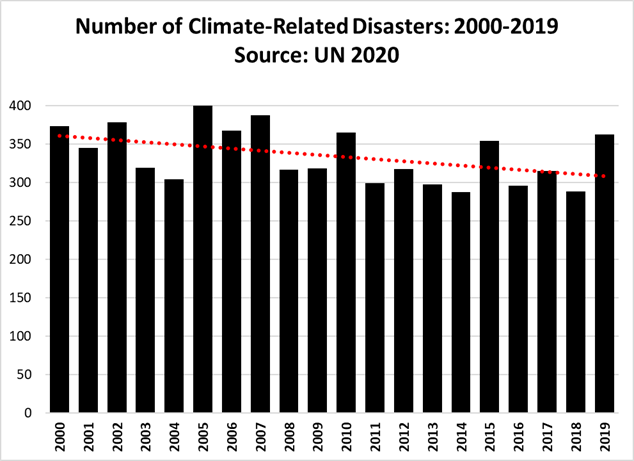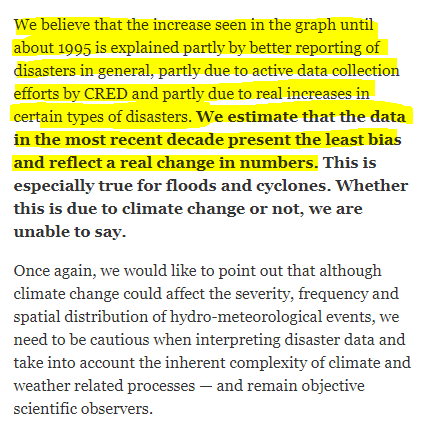
Today is Disaster Risk Reduction Day #DRRDay
There is good news to report on this front, but continued progress requires continued effort
There is good news to report on this front, but continued progress requires continued effort
https://twitter.com/UNDRR/status/1315985284308307969
Under indicators of the @UN Sustainable Development Goals the world is making progress with respect to disasters - but there is no guarantee that it will continue, sustained effort is needed
tandfonline.com/doi/abs/10.108…
tandfonline.com/doi/abs/10.108…

Vulnerability has decreased globally:
"Results show a clear decreasing trend in both human & economic vulnerability, with global average mortality & economic loss rates that have dropped by 6.5 and nearly 5 times, respectively, from 1980–1989 to 2007–2016"
sciencedirect.com/science/articl…
"Results show a clear decreasing trend in both human & economic vulnerability, with global average mortality & economic loss rates that have dropped by 6.5 and nearly 5 times, respectively, from 1980–1989 to 2007–2016"
sciencedirect.com/science/articl…
Progress on disasters with respect to UN SDG indicators can be seen across all global income categories
thelancet.com/journals/lance…
thelancet.com/journals/lance…

What matters most for continued progress with respect to disasters?
Governance
Accountability
Energy access
Infrastructure
and more
See: tandfonline.com/doi/abs/10.108…
/END
Governance
Accountability
Energy access
Infrastructure
and more
See: tandfonline.com/doi/abs/10.108…
/END
• • •
Missing some Tweet in this thread? You can try to
force a refresh












